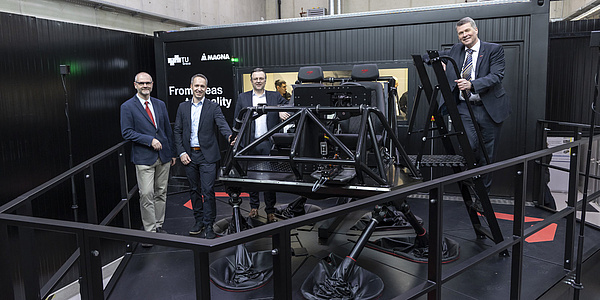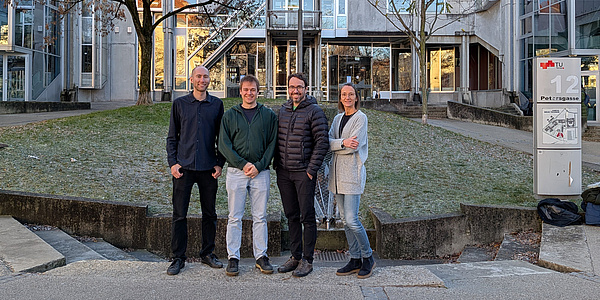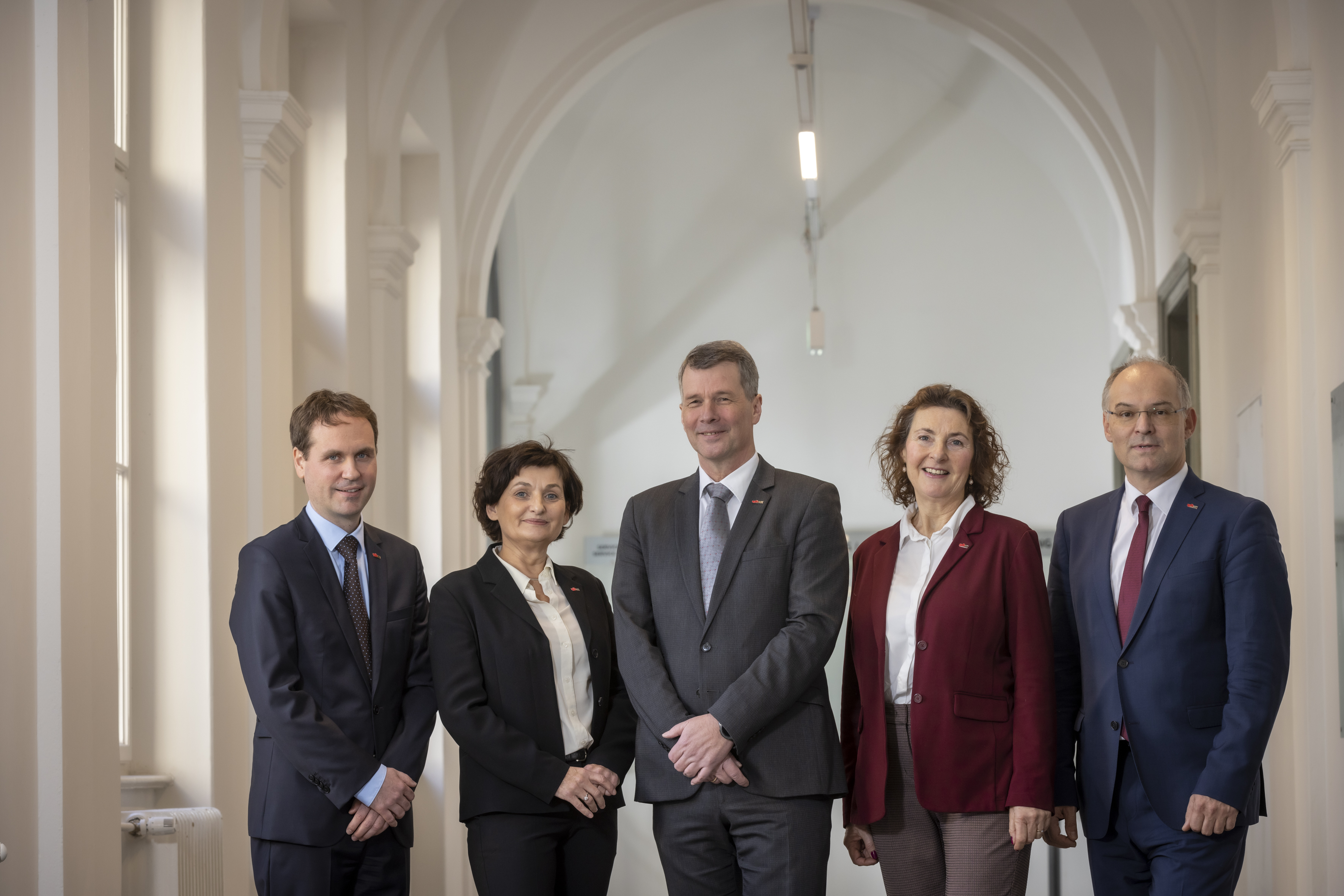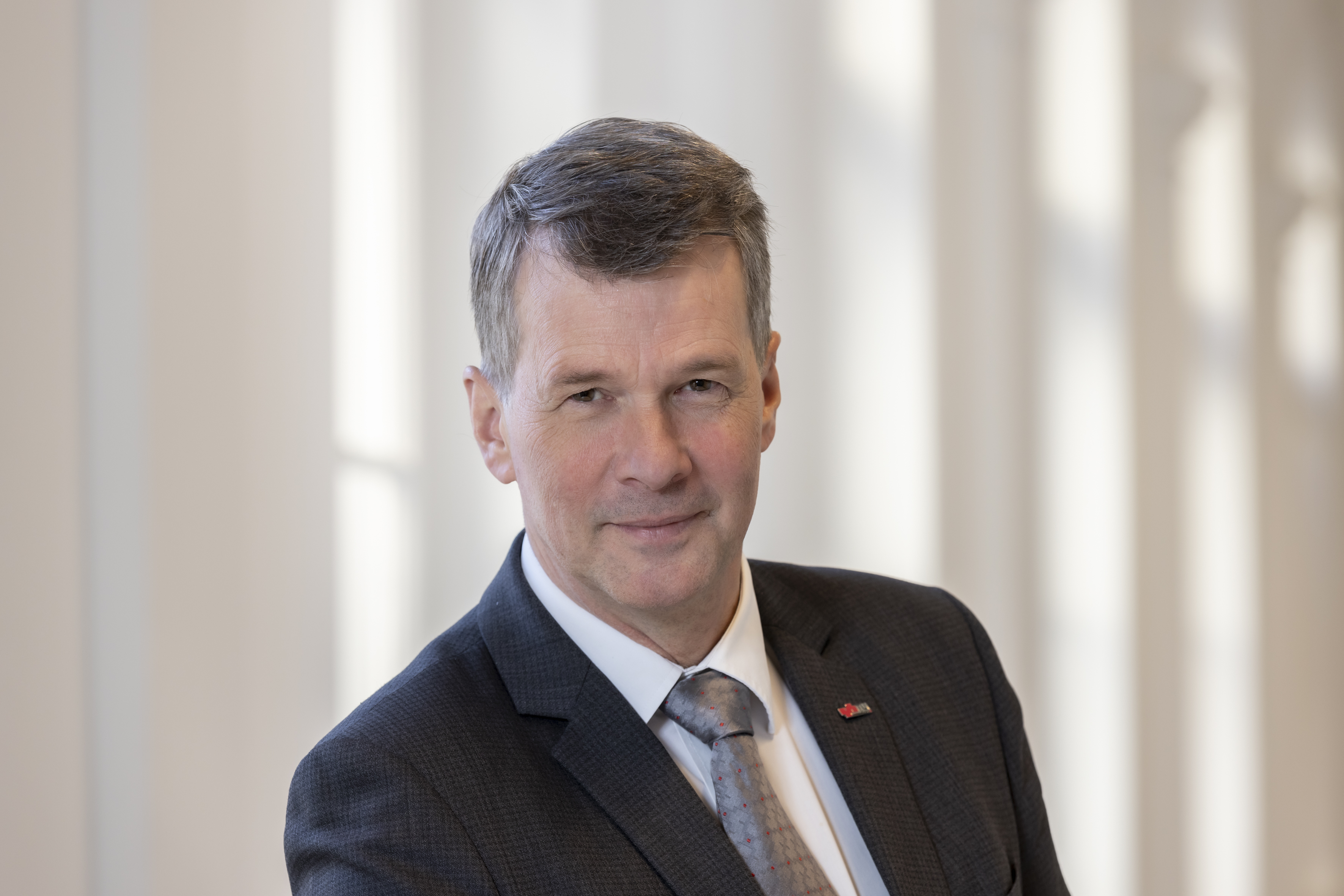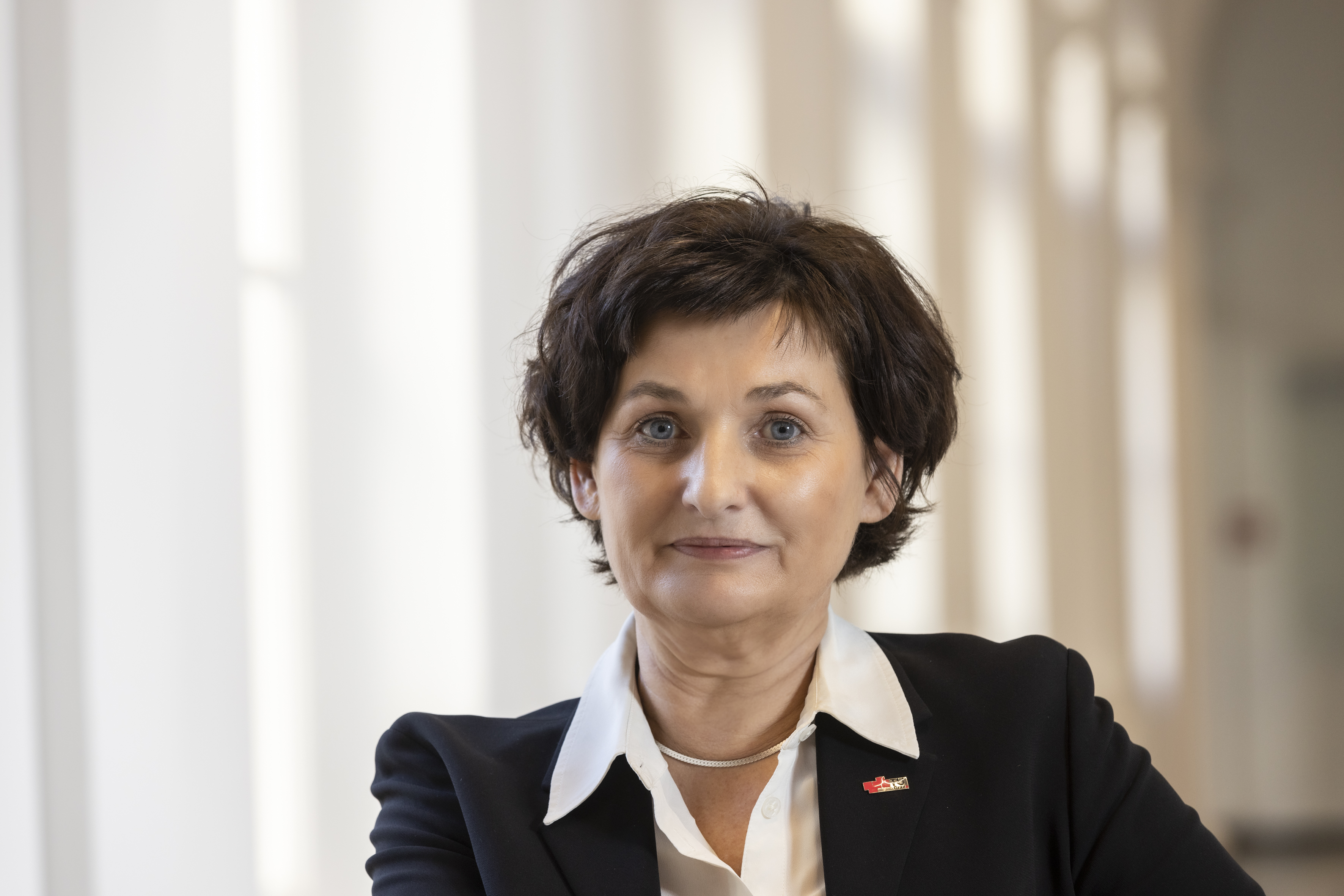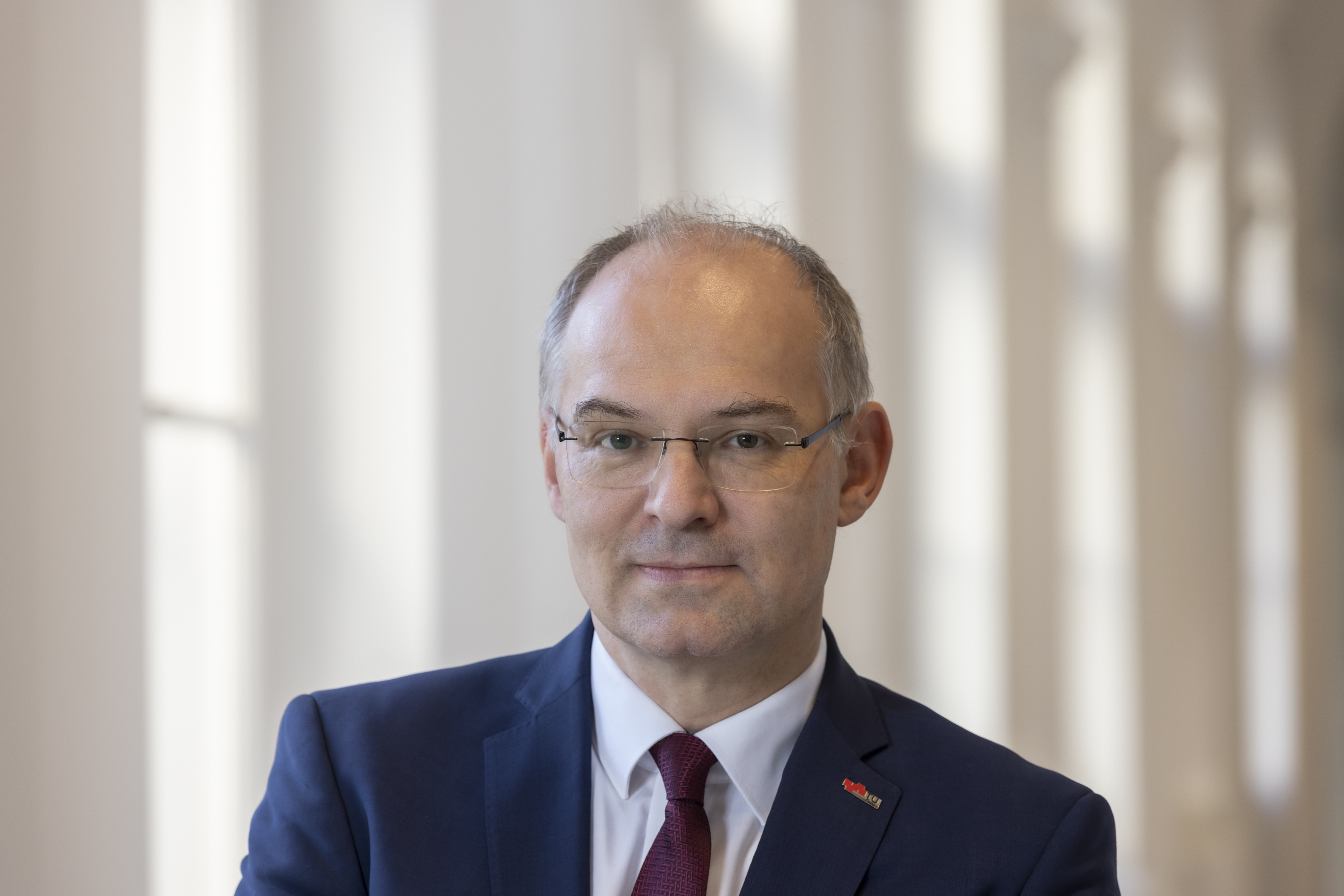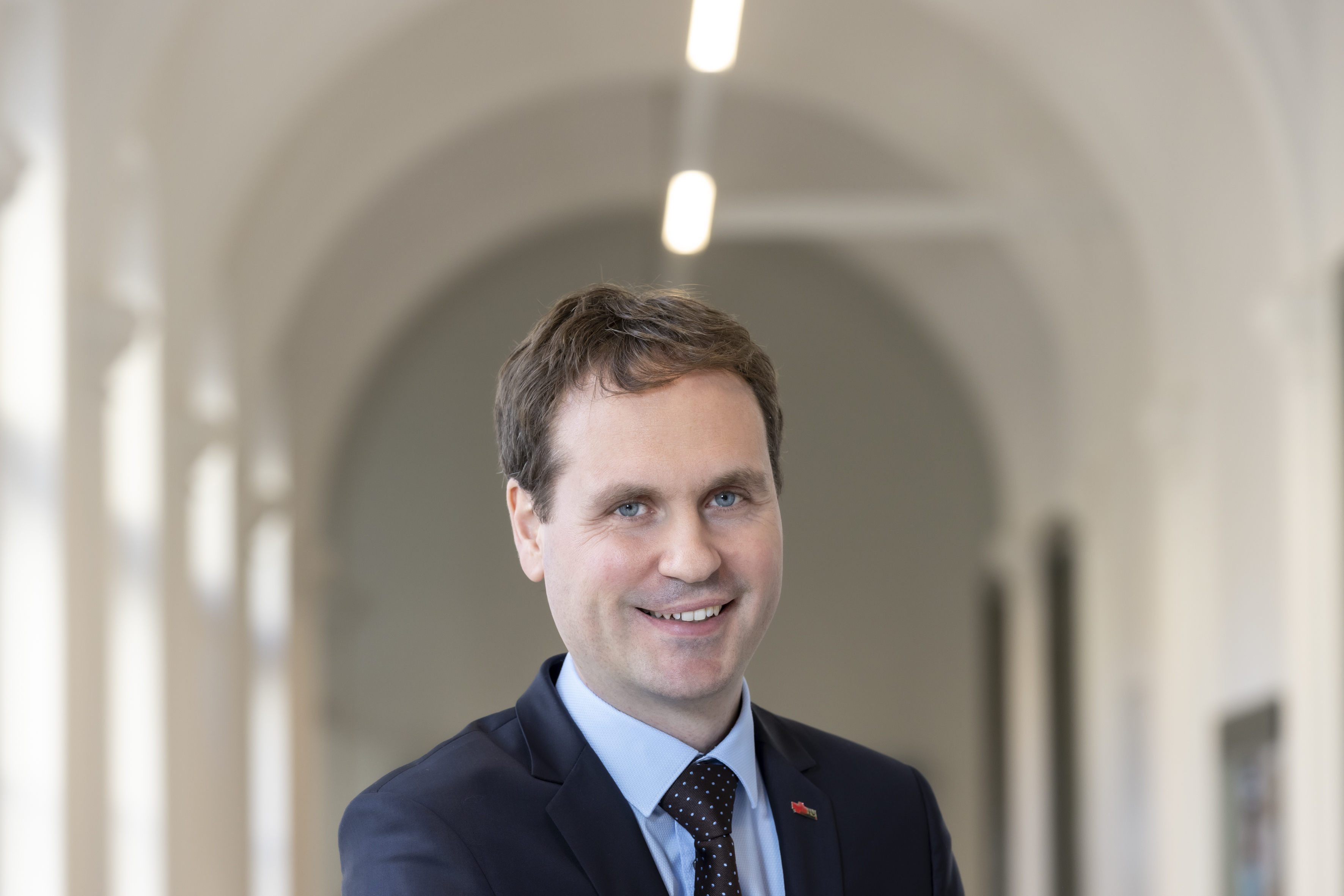The Rectorate of TU Graz 2023 to 2027: New paths on a solid foundation
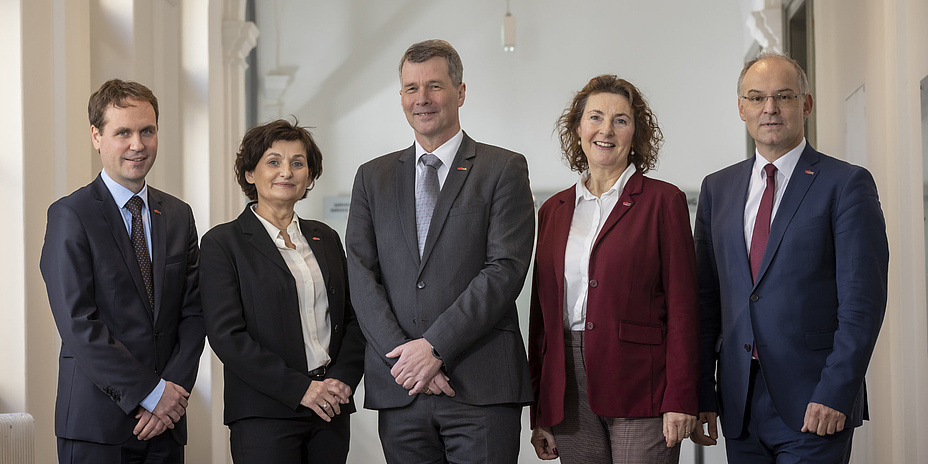
The new Rectorate of Graz University of Technology (TU Graz) under Rector Horst Bischof will begin its term of office on October 1, 2023. The team of Vice Rectors combines continuity with new accents. Andrea Höglinger is the new Vice Rector for Research, and Michael Monsberger the new Vice Rector for Infrastructure and Sustainability. Andrea Hoffmann will remain Vice Rector for Human Resources and Finance, and Stefan Vorbach will remain as Vice Rector for Academic Affairs.
TU Graz as an impulse generator
The new Rector Horst Bischof has had a significant influence on TU Graz during the twelve-year reign of the outgoing Rector Harald Kainz as the long-serving Vice Rector for research. The new Rectorate will build on the joint successes and the excellent positioning of Austria’s oldest technical university in the national and European research area. The visibility of TU Graz is to be further increased and the university is to become a magnet for outstanding students and lecturers from all over the world. The goal is to sustainably increase the number of STEM graduates. This requires excellent conditions in research and teaching as well as the maintenance and expansion of networks at the intersection of science and business. Rector Horst Bischof explains: “TU Graz is a trailblazer. By this we mean thematic leadership in key societal challenges such as the digital and green transformation, and the need to transfer this knowledge to business and society. We want to live up to this responsibility even more in the future.”
Specifically, TU Graz will continue to promote the location of start-ups and companies on the Inffeldgasse Campus and intensify business cooperation and knowledge transfer through shared research infrastructure or pioneering continuing education formats. Horst Bischof also emphasises the central importance of national and international strategic partnerships for TU Graz, including NAWI Graz, BioTechMed-Graz, TU Austria and the international university alliance Unite! “We want to further expand these partnerships,” says Rector Bischof, “and use them to clearly position and strengthen TU Graz as a leading and highly attractive university of technology and natural sciences in Europe.”
Strong research profile for further success in national and European funding initiatives
The strategic priorities of the new Vice Rector for Research, Andrea Höglinger, are also in line with this. She wants to further develop the position of TU Graz as a strong university in the European Research Area and further advance the strategic use of national and European funding opportunities. The national and international networks mentioned above, play an important strategic role by strengthening the research profile of TU Graz and by contributing to the critical mass required to be successful at EU level. Thanks to her many years of experience as head of the European and International Programmes (EIP) division of the Austrian Research Promotion Agency (FFG), Vice Rector Andrea Höglinger has excellent national and international connections and is familiar with all the relevant funding initiatives.
TU Graz will position itself along its focal points in research and innovation – from the Fields of Expertise and Lead Projects to the Research Centres. Leading participation in research and industry networks as well as excellent basic research as a backbone for innovation will shape the TU Graz research profile under Vice Rector Andrea Höglinger. “In the coming years, TU Graz will continue to stand for an intelligent combination of outstanding basic research and a high capacity for innovation. With research, innovation and knowledge transfer, our university not only strengthens the national and regional competitiveness, but also makes a significant contribution to key technological and societal transformation processes.”
Maximum studyability, technology-supported teaching and micro-credentials
With Stefan Vorbach, the Vice Rectorate for Academic Affairs remains unchanged in terms of personnel, but the Vice Rector will set new priorities in the new rectorate period. Particular attention will be paid to the transition from school to university and the support of first-year students. Students will receive the best possible support at every stage of their studies – from the bachelor's degree to the doctorate– and will be successfully guided through their studies. This will reduce dropout rates and increase the number of STEM graduates. As a pioneer of technology-enhanced teaching and learning in Austria, TU Graz will continue to professionalise this area and accelerate the responsible use of artificial intelligence (AI). The goal is to enable personalised learning through AI and to provide an adaptive learning and teaching environment. In addition, new content and teaching formats for study programmes and continuing education will be introduced, and existing content will be reformed.
“TU Graz offers education at the highest international level. Our graduates therefore enjoy a high reputation in science, society and business. Our aspiration is to provide our students with the best educational opportunities at all stages of their lives,” says Vice Rector Stefan Vorbach. In the area of Lifelong Learning, TU Graz focuses on AI, twin transition and on a wide range of formats and degrees, from micro-credentials to MBA or EMBA university courses.
TU Graz GPT and an inclusive environment for employees
For Vice Rector Andrea Hoffmann, who is responsible for personnel and finances, the focus in the coming rectorate period will remain on the employees as the central success factor of TU Graz. The goal is to promote a positive employee experience. “We want to create an inclusive environment in which each and every individual can develop their full potential,” says Vice Rector Andrea Hoffmann. The pillars of her programme will be specific training and career programmes, open and transparent communication, optimal compatibility of work and family life, as well as ideal working environments for people with disabilities or chronic illnesses.
Another main focus will be on simplifying administrative processes under the guiding principle of “Administration: Together, efficient and transparent”. Process optimisation and digitalisation are being driven forward so that employees can concentrate on their core tasks. “We will use artificial intelligence in administration and introduce TU Graz GPT to make it easier to find relevant information,” explains Andrea Hoffmann.
TU Graz – A role model for sustainable development
With the newly created Vice Rectorate for Infrastructure and Sustainability, headed by Michael Monsberger, Graz University of Technology is acknowledging the importance of universities in shaping a sustainable future. Building on the successful path to becoming Austria's first carbon-neutral university by 2030, Monsberger aims to make Graz University of Technology an internationally visible beacon of sustainable action. "To achieve this, it is important to think about sustainability holistically. We will include all areas of our university's activities in the sustainability strategy and develop them accordingly," explains Vice Rector Michael Monsberger. The roadmap "Climate Neutral TU Graz 2030" defines key sustainability measures in the areas of mobility, energy and buildings. In addition, as part of the "Innovation District Inffeldgasse" initiative, the infrastructure of Graz University of Technology will increasingly be used as a real-world laboratory to develop and demonstrate sustainability innovations.
Graz University of Technology is a growing university, which is evident in the development of the Inffeldgasse Campus, where an ambitious master plan will be implemented over the coming decades together with the Bundesimmobiliengesellschaft (BIG) and in cooperation with partners in the city, state and federal government. Expanding the infrastructure for research and teaching according to the sustainability goals will not be easy, but Michael Monsberger is happy to accept this challenge: “We want to lead by example and be a role model for sustainability in the future.”
Would you like to receive the latest stories, news, research stories, interviews or blog posts from TU Graz directly on your smartphone or in your email inbox? Subscribe to the TU Graz Telegram newsletter free of charge.
Kontakt
Barbara GIGLER, Press Officer
TU Graz | Communications and Marketing
Mobile: +43 664 60 873 6006
barbara.gigler@tugraz.at
